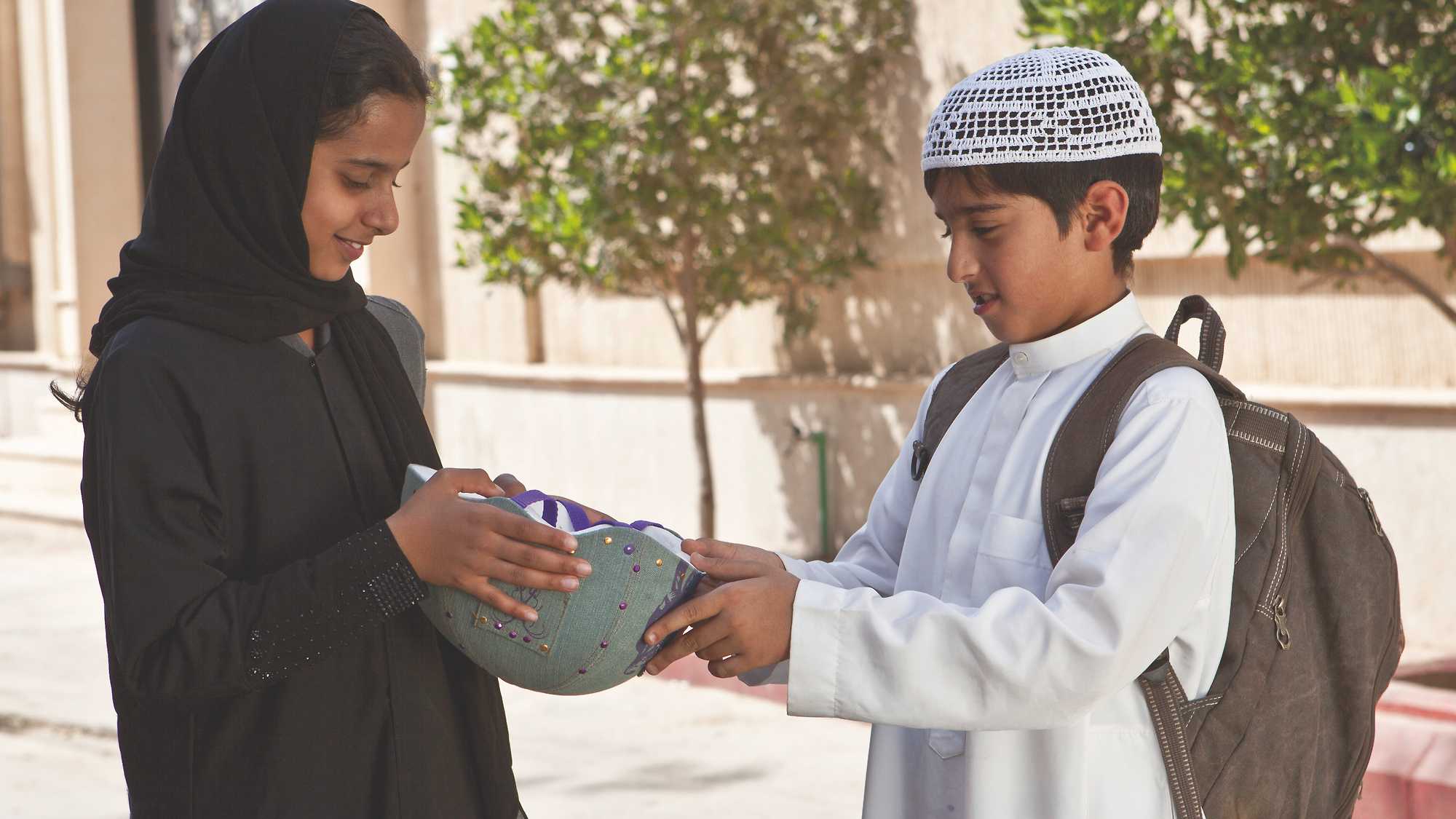The first-ever feature to be made entirely in Saudi Arabia or directed by a Saudi woman is a smart and funny tale of a sassy ten-year-old girl with her heart set on owning a bike.

Cinema is illegal in Saudi Arabia. We are hoping this will change.
Screened as part of NZIFF 2013
Wadjda 2012
From the opening shot of the heroine’s Chuck Taylors poking out from under her school uniform, we are totally on side with the sassy ten-year old Wadjda (Waad Mohammed). Set in Riyadh, Wadjda is not only the first full-length film to be entirely shot in Saudi Arabia, but also the first feature directed anywhere by a Saudi woman, Haifaa Al Monsour. In a country where women are not allowed to vote or drive, and cinema itself is banned, it’s already a surprising achievement. Even better, it is as smart and funny as its young heroine, scoring its satiric points with a light hand, while never leaving us in any doubt that public life for a Saudi woman is seriously limited.
With her gorgeous teacher-mother restlessly toeing the line and hopelessly pining for her errant husband, the incredulous Wadjda invents her own one-girl stand for girl power. Her chief goal is to beat her male neighbour (and number one fan) in a bicycle race, even if it means feigning piety to win the price of a bike in a Koran recital competition.
“Waad Mohammed, born and raised in Riyadh, is utterly disarming in the title role: she strikes the perfect balance between cheek and impudence, and her tomboyish grin lights up the screen…
Al Mansour reveals in the film’s production notes that she often had to direct from her production van via walkie-talkie… but Wadjda offers the hope that for the next generation of Saudi women, things might be different. Modest as it may look, this is boundary-pushing cinema in all the best ways, and what a thrill it is to hear those boundaries creak.” — Robbie Collin, Telegraph